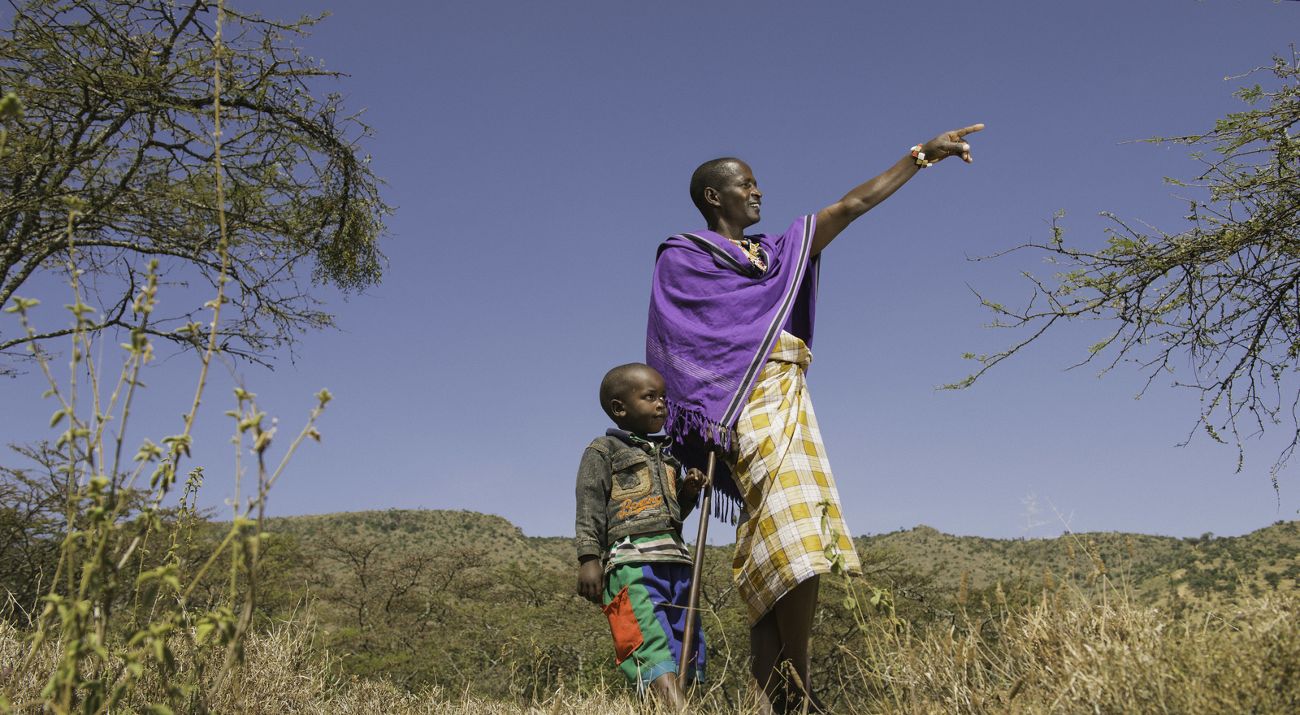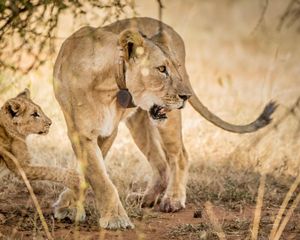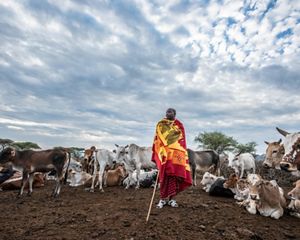Strengthening Indigenous Landscapes
Partnering with Indigenous communities in Africa to solve complex challenges
Camouflaged among undulating grasses and thorny shrublands, prides of lions and packs of African wild dogs advance stealthily in hopes of taking an otherwise wary antelope by surprise. On the arid rangelands of northern Kenya, such predator-prey dramas have been playing out for millennia—often against the backdrop of epic migrations. But sometimes the predator becomes prey.
On one crisp September night, a young male lion known as Livingstone to the researchers from partner Lion Landscapes tracking his movements faced a dilemma: He could continue lurking around uninhabited fringes of Loisaba Conservancy, risking the wrath of older, territorial lions or venture into populated areas and potentially face defensive pastoralists protecting their livestock. Livingstone chose the first option and ended up losing his life because there was nowhere left to go.
Africa’s population is on pace to double by 2050. Such growth puts unprecedented pressure on natural resources, including those that people rely on for food and water, shelter, energy, and myriad other needs. Already, African forests are falling faster than anywhere else in the world and large, connected wildlife corridors for animals like Livingstone are being plowed and converted to low-yielding cropland.
Africa’s natural resources are finite. Their disappearance threatens wildlife and Indigenous people throughout Africa. So TNC and our partner organizations work alongside communities who share Africa’s natural spaces with wildlife. Together, we can strike a balance that works for everyone in a changing world.
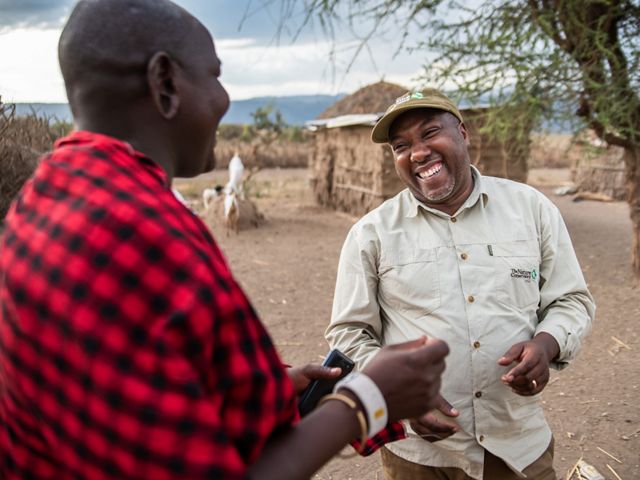
Download a Fact Sheet
Across 55 million acres of Indigenous and communal lands, TNC pursues three top priorities:
1. Secure community ownership rights to their lands and resources
2. Strengthen leadership and natural resource management capacity
3. Increase benefits to communities and revenue streams for conservation
Community ownership rights to their lands and resources incentivizes and enables Indigenous communities to be the best stewards of the land. Moreover, the deep knowledge that evolves over generations of living on the land is priceless.
In pairing that lndigenous knowledge with our sound science, we all become better equipped to ensure that lands are healthy and well-managed. Meanwhile, we also work at national and regional levels, advocating for policies and resources to help Africa navigate toward a wild and prosperous future.
Quote: Joyce Lelukai
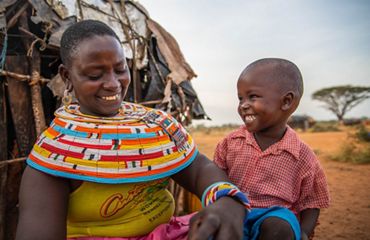
Before I started working with BeadWORKS, I used to cut trees and sell charcoal but now I have stopped because I now know that trees are valuable. I will continue to be a star beader because I can see my life has gotten better.
In order to endure, conservation must make people’s lives better. TNC provides support for thousands of households to access economic opportunities… everything from coordinating the formation of grazing zones that lead to healthier grass to bringing the products made by BeadWORKS’ artisans to the global online marketplace.
Ultimately, our goal is to secure permanent protection or durable community-led conservation in iconic landscapes: the woodlands of Zambia; the rangelands of northern Tanzania and northern Kenya, the shores of Lake Tanganyika, and the Okavango Basin.
